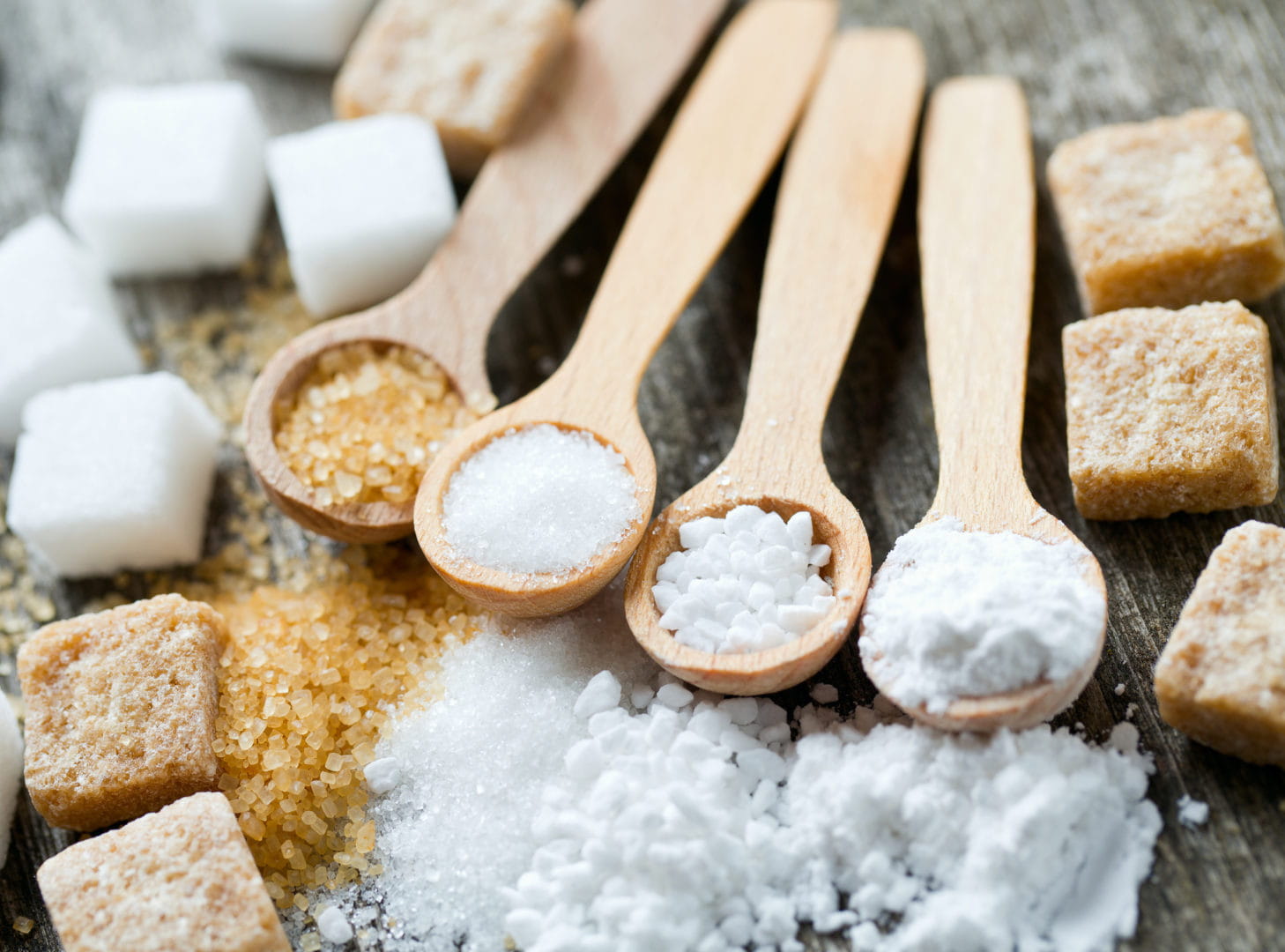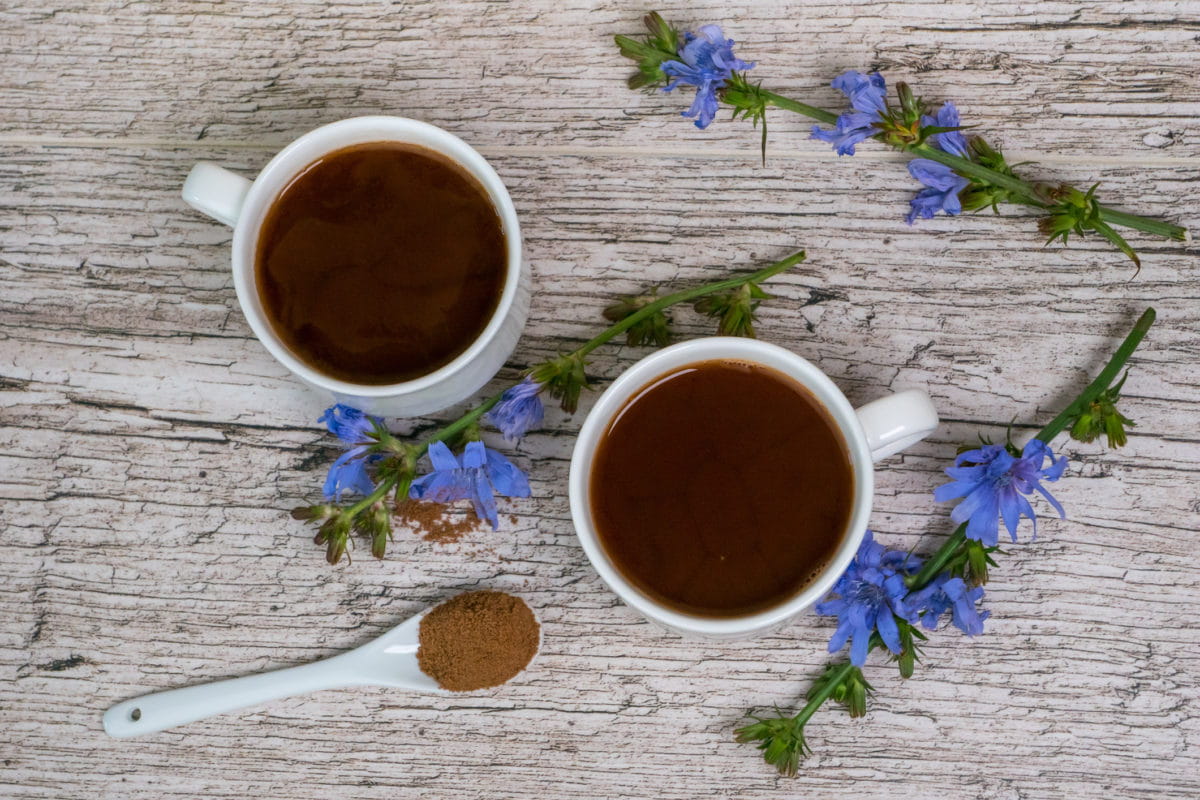Sugar Reduction in the Food and Beverage Space
February 10, 2022
Click Here for the full report!
Low-sugar and low-carb diets like keto have exploded in the last few years. And with the increasing evidence that pre-existing health conditions like obesity, diabetes and more can worsen the effects of COVID-19, it’s no wonder that more consumers are trying to keep a watchful eye on their diet. Consumers are more aware of their relationship with sugar and many are making moves to slow down their sugar intake. But cutting down on sucrose doesn’t have to mean cutting down on taste. New innovations in sweetener alternatives, fibers, and flavor are all helping consumers live the sweet life without all the sugar. From consumers’ thoughts on sugar reduction to their favorite sweeteners, flavors and more, read on to learn how your brand might be able to fit in this space.

While sugar isn’t necessarily bad on its own, experts have linked excessive sugar consumption to health conditions like type 2 diabetes, high blood pressure and other risk factors for heart disease. As such, it’s an ingredient that is best in moderation and many processed foods contain added sugar — in fact, NCBI research shows in the U.S., added sugars comprise up to 17% of adults’ total calorie intake and up to 14% for children.
Consumers’ desire to limit sugar intake precedes the pandemic, when Mintel reports that 56% of U.S. consumers who were limiting their sugar intake were doing so because of future health concerns. Now, with the increased health concerns surrounding Covid-19, 30% of U.S. internet users say that “low sugar” has become more important to them, and 55% of U.S. adults want to limit sugar in their diet.
Past Three Years with Sugar Free, Low/Reduced Sugar, or No Added Sugar Claim
Many of the biggest diet trends of the last few decades, including Atkins, keto and paleo, revolve around cutting down on sugar and carbs and are driving the prevalence of new types of sweeteners, particularly allulose and erythritol. Because these diets limit carbs and sugar, it’s no surprise that most keto-focused innovation is centered in the snacks and bakery categories, each of which accounted for 16% of global keto food and drink launches in the past five years, according to Mintel.
Chobani Zero Sugar Blueberry Flavor Yogurt contains 60 calories per pack, and is free from sugar, artificial sweeteners, lactose, preservatives, GMO and gluten. The product uses allulose, stevia reb M and monk fruit extract.
52% of consumers responded that they likely or definitely would buy this product.
Primal Kitchen Unsweetened Classic BBQ Sauce is free from added sugar, soy, GMO, gluten, anything synthetic or artificial, high fructose corn syrup, honey, agave, and grain. The product contains 15 calories per 2 tablespoon serving.
45% of consumers responded that they likely or definitely would buy this product.
Catalina Crunch keto-friendly cereal is gluten-free, sugar-free and sweetened with stevia and monk fruit. The product comes in flavors including Cinnamon Toast, Chocolate Banana and Maple Waffle.
28% of consumers responded that they likely or definitely would buy this product.
Kodiak Cakes Buttermilk Flavored Flapjack & Waffle Mix is crafted with 100% whole grains, is protein-packed, is suitable for carb-conscious and provides 14g protein and 15g net carbs per serving. The product has no sugar added.
36% of consumers responded that they likely or definitely would buy this product.
A wide variety of sweetener options makes for lots of innovation opportunity in this space. Sweetener options from allulose to stevia, monk fruit and more provide options for developers in this space, making it easier to meet consumers’ health needs and desire for great taste. Let’s take a look.
Perhaps the best-known natural sugar substitute, this is an extract made from the leaves of the stevia plant. It’s intensely sweet –– roughly 100 to 300 times sweeter than table sugar –– but it has no carbs, calories, or artificial ingredients. However, traditional stevia comes with a significant taste challenge: bitterness.
A common ingredient in traditional Chinese medicine, monk fruit’s sweetness doesn’t come from fructose or glucose, but antioxidants called mogrosides that are extracted from the juice and then processed into a potent, zero-calorie natural sweetener.
Yacon plants are native to the Andes and have been used in traditional medicine for centuries. The roots can be processed into a high-fiber, sweet syrup that’s about a third of the caloric value of sugar.
Purecane’s sweeteners feature erythritol and proprietary Reb M made from sugarcane. The products claim to taste and perform just like traditional sweeteners in baked goods, with zero carbs or sugar.
35% of consumers responded that they likely or definitely would buy this product.
Rowdy Bars are geared toward outdoor adventurers and are gluten-free, paleo-friendly, full of prebiotic fiber and sweetened with yacon syrup. Flavors include Keto Chocolaty Cookie Dough and Peanutty Dark Chocolate.
Enlightened Keto Caramel Chocolate Double Dough Ice Cream is described as caramel and chocolate ice cream with brownie bites and cookie dough. Their ice cream products are low-fat and sweetened with monk fruit extract, while their ready-to-bake cookies contain 2g net carbs per cookie.
35% of consumers responded that they likely or definitely would buy this product.
For food and beverage brands, there is opportunity in offering flavorful low or no calorie options for consumers especially in the beverage space. Clear and prominent labels to promote low sugar products may also entice consumers looking to reduce their consumption. Flavor solutions, including taste modifiers and maskers, can often help with any negative taste impacts that may accompany sugar reduction or non-nutritive sweeteners.

Another option for sugar reduction is using fibers to replace the sweetness and bulk provided by traditional sugar. And since Mintel reports that 48% of U.S. adults want to eat more fiber, it has the added benefit of providing an opportunity for gut-health claims. Additionally, 56% of U.S. adults find sweeteners that provide other nutritional benefits appealing.
According to Food Ingredients First, Chicory root “can replicate sugar’s functions as a flavor enhancer and texturing or bulking agent, in addition to providing sweetness.”
A staple in beverage production, acacia gum provides not only sweetness but volume and texture to low-sugar products. Food Ingredients First also reports that it can “improve the softness and mouthfeel thanks to an increase in water retention.”
Luna Prebiotic Bars, are available in Wild Cherry and Tangerine Zest. The product targets gut health while also reducing sugar content by using chicory root syrup as well as 8g of protein.
So Delicious Dairy-Free Vanilla Bean frozen dessert is vegan, gluten-free and contains no added sugar. It’s sweetened with chicory root extract, acacia gum and monk fruit extract. The product contains 10g of fiber and 2g total sugars per serving.
For consumers, life with less sugar can still be sweet without sacrificing on taste. Whether people are looking for diet friendly substitutes, more natural sweeteners or simply want to reduce their sugar consumption all together, there have never been more options for mimicking the taste and texture that sugar brings to food and beverage products. And for those sweetener alternatives that give off taste challenges like bitterness and unpleasant mouthfeel, flavor can help to develop the perfect product for your consumer. If you’re thinking about integrating low- or no-sugar options into your product line, just remember one thing: it still has to taste great!
Click here for the full report!
What does true partnership look like? You deserve a flavor partner ready to turn these trends into the tangible.
Let FONA’s market insight and research experts get to work for you. Translate these trends into bold new ideas for your brand. Increase market share and get to your “what’s next.” Our technical flavor and product development experts are also at your service to help meet the labeling and flavor profile needs for your products to capitalize on this consumer trend. Let’s mesh the complexities of flavor with your brand development, technical requirements and regulatory needs to deliver a complete taste solution.
From concept to manufacturing, we’re here for you — every step of the way. Contact our sales service department at 630.578.8600 to request a flavor sample or chat us up at www.mccormickfona.com/contact-mccormick-flavor-solutions/
Sources in full report
Low-sugar and low-carb diets like keto have exploded in the last few years. And with the increasing evidence that pre-existing health conditions like obesity, diabetes and more can worsen the effects of COVID-19, it’s no wonder that more consumers are trying to keep a watchful eye on their diet. Consumers are more aware of their relationship with sugar and many are making moves to slow down their sugar intake. But cutting down on sucrose doesn’t have to mean cutting down on taste. New innovations in sweetener alternatives, fibers, and flavor are all helping consumers live the sweet life without all the sugar. From consumers’ thoughts on sugar reduction to their favorite sweeteners, flavors and more, read on to learn how your brand might be able to fit in this space.

The State of Sugar
While sugar isn’t necessarily bad on its own, experts have linked excessive sugar consumption to health conditions like type 2 diabetes, high blood pressure and other risk factors for heart disease. As such, it’s an ingredient that is best in moderation and many processed foods contain added sugar — in fact, NCBI research shows in the U.S., added sugars comprise up to 17% of adults’ total calorie intake and up to 14% for children.
Consumers’ desire to limit sugar intake precedes the pandemic, when Mintel reports that 56% of U.S. consumers who were limiting their sugar intake were doing so because of future health concerns. Now, with the increased health concerns surrounding Covid-19, 30% of U.S. internet users say that “low sugar” has become more important to them, and 55% of U.S. adults want to limit sugar in their diet.
Consumer Relationships with Sugar
- 41% of females and 35% of males would like to reduce their sugar in-take
- 30% of females and 33% of males have a healthy relationship with sugar
Consumer Actions to Limit Sugar In-Take
- 64% of females and 54% of males are drinking water instead of caloric beverages
- 40% of females and 43% of males are eliminating certain foods/beverages
- 40% of females and 32% of males are using the nutrition facts panel to choose items with less sugar
Flavor Favorites
Top Flavors in North America New Product introductions:
Past Three Years with Sugar Free, Low/Reduced Sugar, or No Added Sugar Claim
- Chocolate
- Vanilla/ Vanilla Bourbon/ Vanilla Madagascar
- Strawberry
- Peanut Butter
- Apple
- Mango
- Orange/Sweet Orange
- Berry
- Raspberry
- Watermelon
The Low-Carb & Sugar Equation
Many of the biggest diet trends of the last few decades, including Atkins, keto and paleo, revolve around cutting down on sugar and carbs and are driving the prevalence of new types of sweeteners, particularly allulose and erythritol. Because these diets limit carbs and sugar, it’s no surprise that most keto-focused innovation is centered in the snacks and bakery categories, each of which accounted for 16% of global keto food and drink launches in the past five years, according to Mintel.
Products of Note:
Chobani Zero Sugar Blueberry Flavor Yogurt contains 60 calories per pack, and is free from sugar, artificial sweeteners, lactose, preservatives, GMO and gluten. The product uses allulose, stevia reb M and monk fruit extract.
52% of consumers responded that they likely or definitely would buy this product.
Primal Kitchen Unsweetened Classic BBQ Sauce is free from added sugar, soy, GMO, gluten, anything synthetic or artificial, high fructose corn syrup, honey, agave, and grain. The product contains 15 calories per 2 tablespoon serving.
45% of consumers responded that they likely or definitely would buy this product.
Catalina Crunch keto-friendly cereal is gluten-free, sugar-free and sweetened with stevia and monk fruit. The product comes in flavors including Cinnamon Toast, Chocolate Banana and Maple Waffle.
28% of consumers responded that they likely or definitely would buy this product.
Kodiak Cakes Buttermilk Flavored Flapjack & Waffle Mix is crafted with 100% whole grains, is protein-packed, is suitable for carb-conscious and provides 14g protein and 15g net carbs per serving. The product has no sugar added.
36% of consumers responded that they likely or definitely would buy this product.
Common Sugar Substitutes
A wide variety of sweetener options makes for lots of innovation opportunity in this space. Sweetener options from allulose to stevia, monk fruit and more provide options for developers in this space, making it easier to meet consumers’ health needs and desire for great taste. Let’s take a look.
Stevia
Perhaps the best-known natural sugar substitute, this is an extract made from the leaves of the stevia plant. It’s intensely sweet –– roughly 100 to 300 times sweeter than table sugar –– but it has no carbs, calories, or artificial ingredients. However, traditional stevia comes with a significant taste challenge: bitterness.
Monk fruit extract
A common ingredient in traditional Chinese medicine, monk fruit’s sweetness doesn’t come from fructose or glucose, but antioxidants called mogrosides that are extracted from the juice and then processed into a potent, zero-calorie natural sweetener.
Yacon syrup
Yacon plants are native to the Andes and have been used in traditional medicine for centuries. The roots can be processed into a high-fiber, sweet syrup that’s about a third of the caloric value of sugar.
Products of Note:
Purecane’s sweeteners feature erythritol and proprietary Reb M made from sugarcane. The products claim to taste and perform just like traditional sweeteners in baked goods, with zero carbs or sugar.
35% of consumers responded that they likely or definitely would buy this product.
Rowdy Bars are geared toward outdoor adventurers and are gluten-free, paleo-friendly, full of prebiotic fiber and sweetened with yacon syrup. Flavors include Keto Chocolaty Cookie Dough and Peanutty Dark Chocolate.
Enlightened Keto Caramel Chocolate Double Dough Ice Cream is described as caramel and chocolate ice cream with brownie bites and cookie dough. Their ice cream products are low-fat and sweetened with monk fruit extract, while their ready-to-bake cookies contain 2g net carbs per cookie.
35% of consumers responded that they likely or definitely would buy this product.
For food and beverage brands, there is opportunity in offering flavorful low or no calorie options for consumers especially in the beverage space. Clear and prominent labels to promote low sugar products may also entice consumers looking to reduce their consumption. Flavor solutions, including taste modifiers and maskers, can often help with any negative taste impacts that may accompany sugar reduction or non-nutritive sweeteners.

Fill Things Out With Fiber
Another option for sugar reduction is using fibers to replace the sweetness and bulk provided by traditional sugar. And since Mintel reports that 48% of U.S. adults want to eat more fiber, it has the added benefit of providing an opportunity for gut-health claims. Additionally, 56% of U.S. adults find sweeteners that provide other nutritional benefits appealing.
Chicory root
According to Food Ingredients First, Chicory root “can replicate sugar’s functions as a flavor enhancer and texturing or bulking agent, in addition to providing sweetness.”
Acacia gum
A staple in beverage production, acacia gum provides not only sweetness but volume and texture to low-sugar products. Food Ingredients First also reports that it can “improve the softness and mouthfeel thanks to an increase in water retention.”
Products of Note:
Luna Prebiotic Bars, are available in Wild Cherry and Tangerine Zest. The product targets gut health while also reducing sugar content by using chicory root syrup as well as 8g of protein.
So Delicious Dairy-Free Vanilla Bean frozen dessert is vegan, gluten-free and contains no added sugar. It’s sweetened with chicory root extract, acacia gum and monk fruit extract. The product contains 10g of fiber and 2g total sugars per serving.
The Takeaways
For consumers, life with less sugar can still be sweet without sacrificing on taste. Whether people are looking for diet friendly substitutes, more natural sweeteners or simply want to reduce their sugar consumption all together, there have never been more options for mimicking the taste and texture that sugar brings to food and beverage products. And for those sweetener alternatives that give off taste challenges like bitterness and unpleasant mouthfeel, flavor can help to develop the perfect product for your consumer. If you’re thinking about integrating low- or no-sugar options into your product line, just remember one thing: it still has to taste great!
Click here for the full report!
Order your free flavor sample here.
You deserve more. Let’s get started.
What does true partnership look like? You deserve a flavor partner ready to turn these trends into the tangible.
Let FONA’s market insight and research experts get to work for you. Translate these trends into bold new ideas for your brand. Increase market share and get to your “what’s next.” Our technical flavor and product development experts are also at your service to help meet the labeling and flavor profile needs for your products to capitalize on this consumer trend. Let’s mesh the complexities of flavor with your brand development, technical requirements and regulatory needs to deliver a complete taste solution.
From concept to manufacturing, we’re here for you — every step of the way. Contact our sales service department at 630.578.8600 to request a flavor sample or chat us up at www.mccormickfona.com/contact-mccormick-flavor-solutions/
Sources in full report





